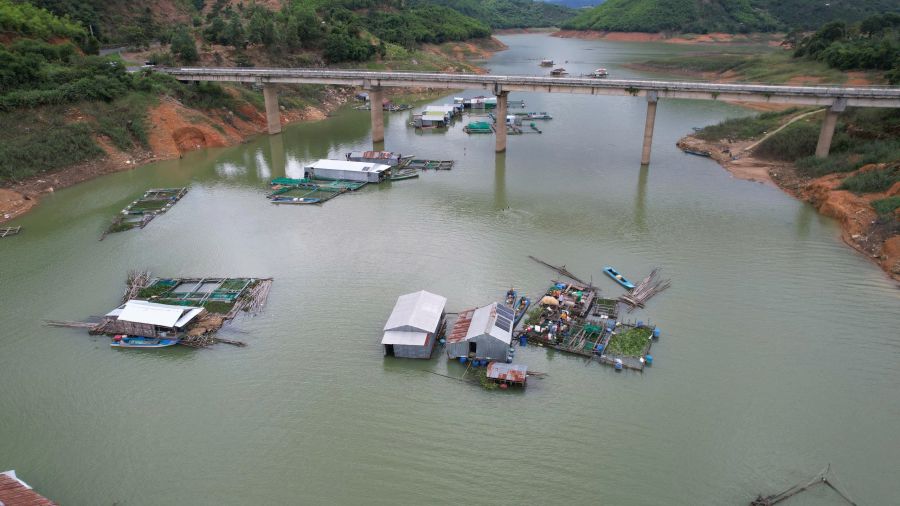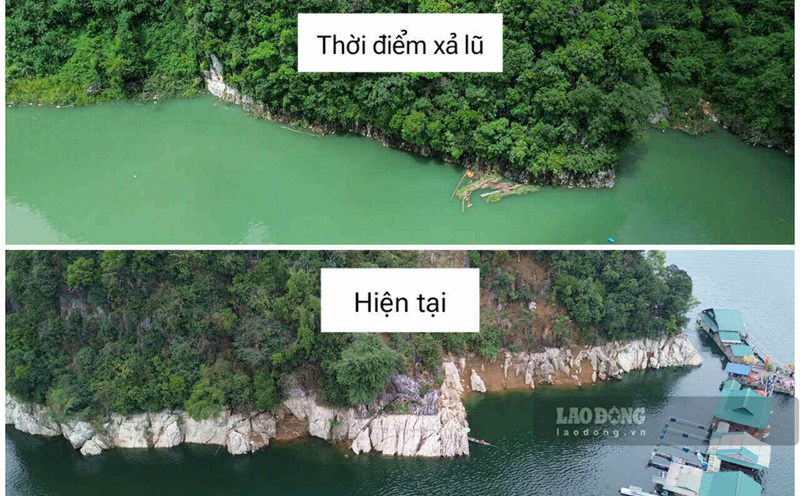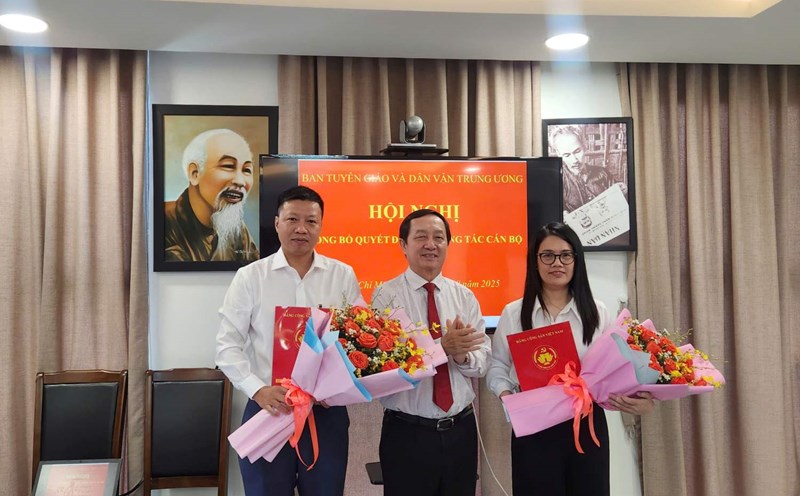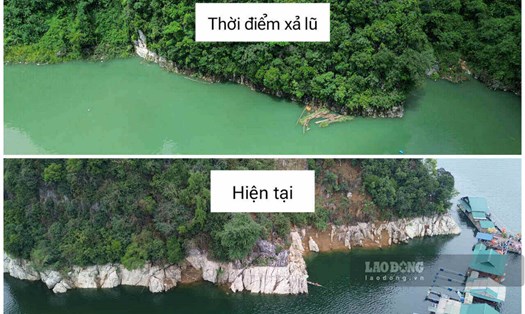The unfinished fates
For more than ten years, many households from the Mekong Delta have left their hometowns to go to hydroelectric reservoirs in Dak Lak and Lam Dong to make a living. They live among the waves, in the huge corrugated iron roofs sheltered from the sun and rain, not knowing when they will ever be able to touch the dream of a solid home to settle down and make a living.
Roofless houses
The Buon Tua Srah reservoir area, in Krong No commune, borders the two provinces of Dak Lak and Lam Dong. This area is nearly 300 hectares wide - a source of water for hydropower plants. Over the years, this place has also become a favorite place for nearly 20 foreigner households.
They come from many Western provinces such as Ca Mau, Dong Thap, Tra Vinh... to build floating houses in the middle of the hydroelectric reservoir to raise fish and fish for a living.
Mr. Vo Van Bich was one of the last ones. This year, nearly 60 years old, with a straight figure and gray hair, he said: More than 5 years ago, I sold a small house in Dong Thap to get money for my wifes treatment. After running out of money and living a miserable life, my family moved here to make a living every day.
"My whole family would like to temporarily settle down in the middle of the lake, living on a floating raft. Over the years, my family has gradually gotten used to life drifting on the waves. I have four children, but until now I have not yet stabilized my house. Every day, just hoping for enough meals and a place to avoid the rain and wind is already very satisfying" - Mr. Bich shared.
In the midst of the heavy rain, Mr. Bich and his wife told about their family's daily income of only about 100,000 - 150,000 VND. On days of heavy rain and wind, I am left empty-handed, at risk of hunger.
The lives of people here have no grid electricity, no clean water... They use batteries, solar panels and have to buy each 20-liter water bottle from the mainland for use. As for bathing and daily activities, they also take advantage of the water source under the lake.
More than 100km away, in Ta Dung Lake, in Ta Dung Commune (Lam Dong Province), about 20 other households are also living on the water surface. They used to live scattered, but after being mobilized, they have focused on an area of 1km2 for convenient management. On a 40m2 raft, Mr. Ho Van Thanh's family has lived on it for many years. Inside the fish cages, there are no partitions, no toilets, the most valuable asset is an old TV...
Mr. Thanh is over 45 years old, but his face is gaunt, making him look like a person over 60 years old.
"The village in Ca Mau is so poor, coming here seems to have changed our lives, everyone thought it would be enough to live a life" - Mr. Thanh said.

Sleeping with storms and winds, waking up with worries
Not only poverty, but people here also face the constant danger of natural disasters. Every storm season, strong waves, floods, and strong winds suddenly hit, causing boats to shake violently.
Ms. Vo Thi Thuy, 56 years old, recalled the flood in 2023: In just one night, the water rose nearly 5 meters. The breeze is clear, the wind is bustling. The whole family was shaking and staying up all night, just praying for God not to sweep everything away. After more than 20 years of living on the lake, I can't remember how many times I have experienced such a horrifying night."
Not only natural disasters, people also face risks of security and order and disease. Untreated domestic wastewater is dumped directly into the lake and then used that water source for domestic use, causing a very high risk of disease. The road to the health station is far, many cases have to wait for the authorities to use special vehicles to promptly take them to the emergency room.
Mr. Tran Van Khanh - Director of Buon Kuop Hydropower Company - said that the company had coordinated a survey and recorded that most of the people living on the lake were free migrants from the Mekong Delta. Although they live illegally, because they do not affect the operation of reservoirs, the company only reminds to preserve the environment, and recommends that the government strictly manage them, especially during the rainy and flood season.
Mr. Khuong Thanh Long - Director of Ta Dung National Park - was more concerned: "People live in the middle of the lake without ensuring hygiene and safety. Every time someone is seriously ill, we have to coordinate to take them to the emergency room, which is very difficult.
Living temporarily in the middle of the lake, many households have been attached to it for decades, from temporary settlement to long-term attachment. The fragile hutts in the midst of the water are not only a place to live, but also contain dreams that change lives but have not always come true.











